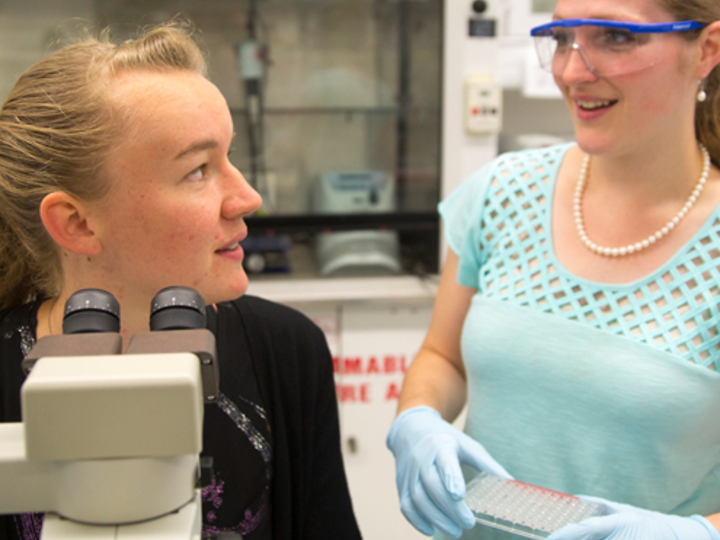Our program is positioned at the interface of the physical sciences (bioinorganic, bio-organic, biophysics), the biological sciences (genetics and molecular biology), and the applied sciences (biotechnology). Such breadth in expertise provides a rich training environment that encourages creative interdisciplinary problem-solving and discovery. Our department fosters growth of productive students into successful career professionals. Within the below research training strengths, faculty and students are investigating a variety of experimental questions relevant to basic, agricultural, and biomedical research.
We excel in several focus areas:
Structural and Chemical Basis of Protein Function
Learn More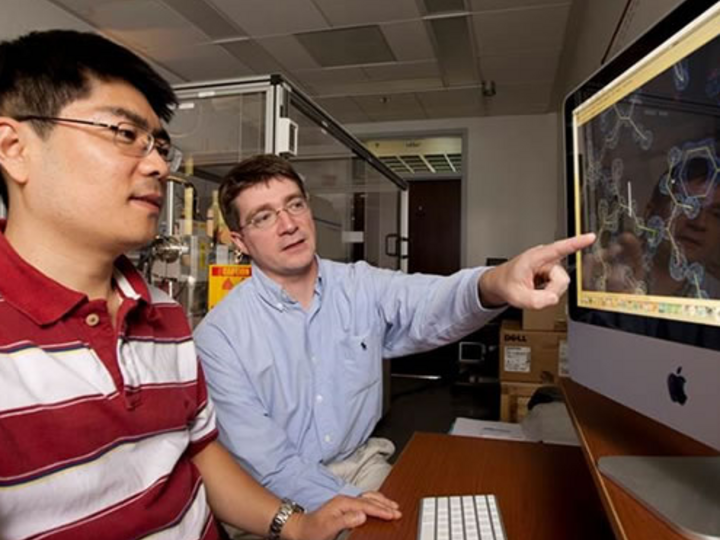
Metabolism and Metabolic Engineering
Learn More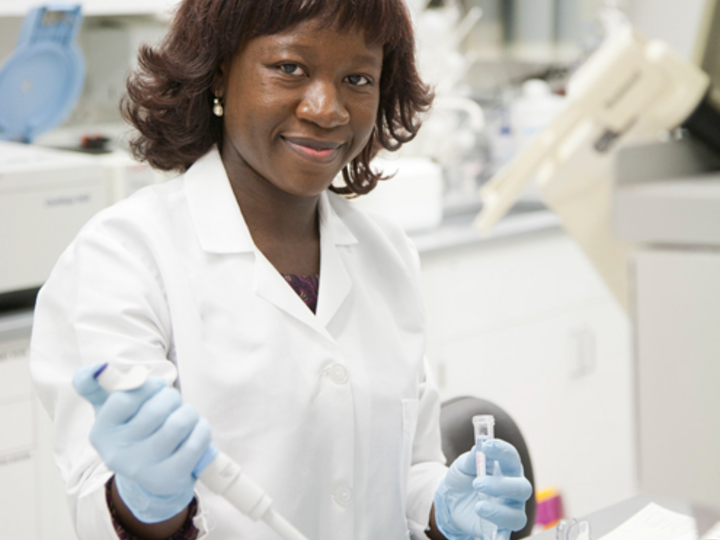
Nebraska Center for the Prevention of Obesity Diseases
Learn More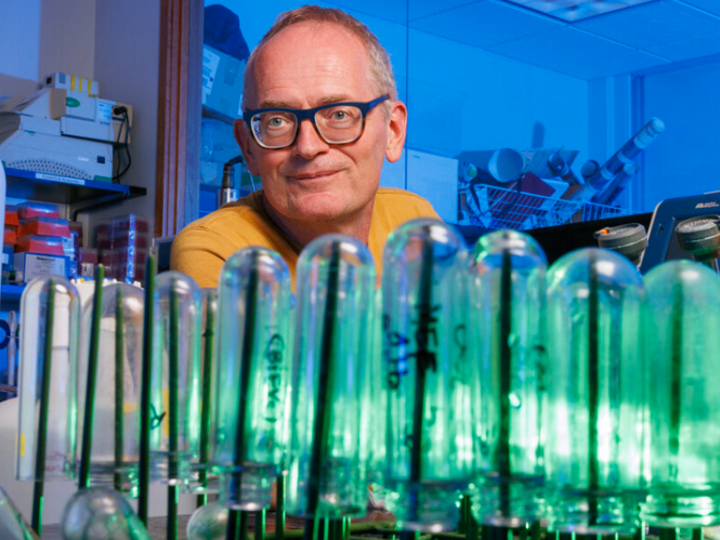
Molecular Mechanisms of Disease
Learn More
Plant and Microbial Biochemistry and Biotechnology
Learn More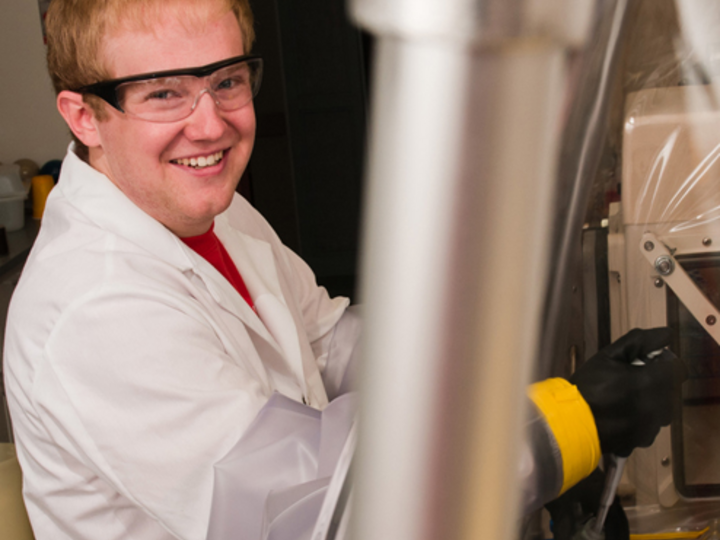
Computational and Systems Biology
Learn More